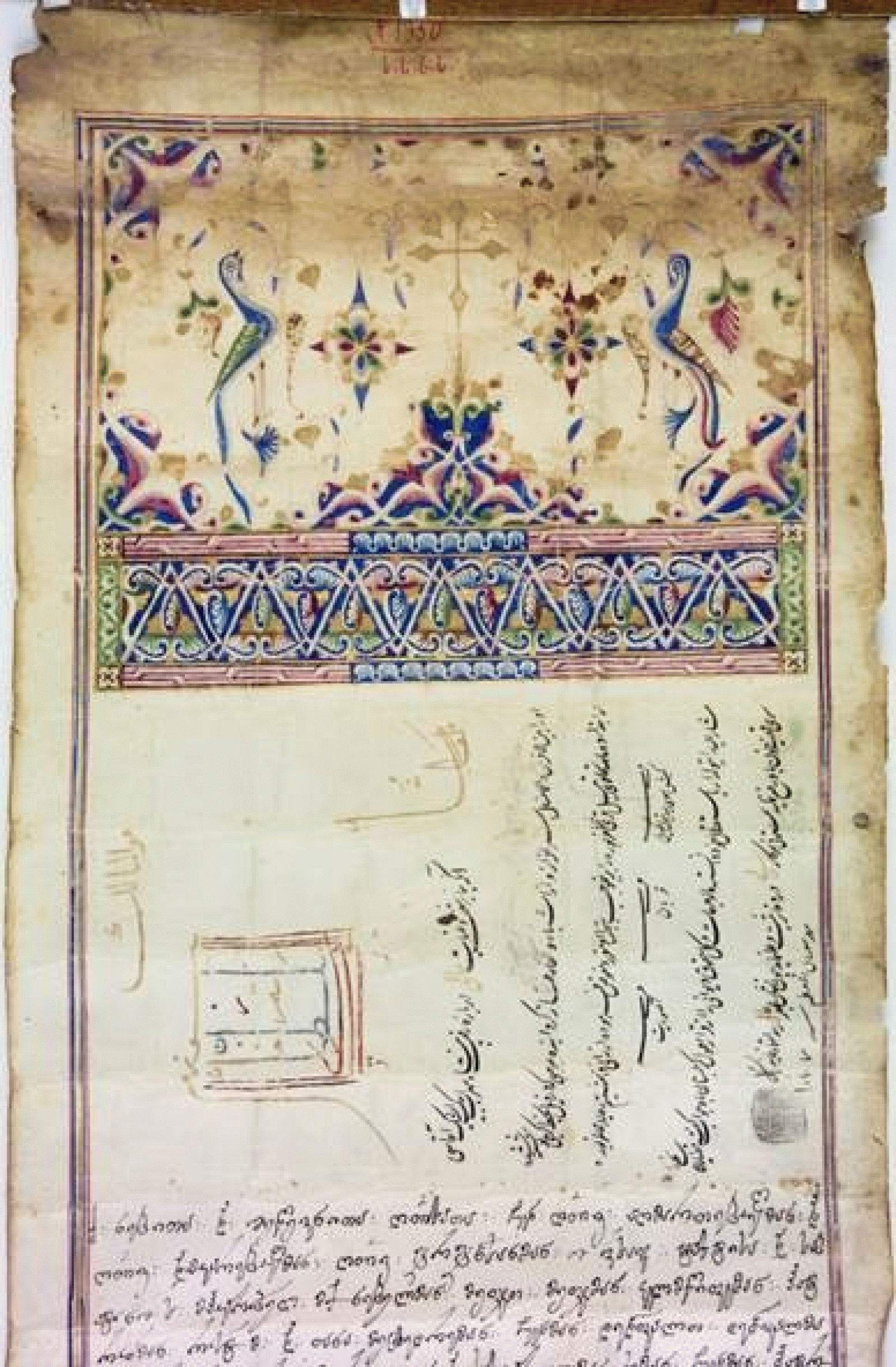Georgia Project Lecture Series
Eter Edisherashvili:
Late Medieval Georgian Illuminated Documents: State of Study and Research Perspectives
Aesthetics, Art, and Architecture in the Caucasus Lecture Series Part II
In collaboration with the George Chubinashvili National Research Centre for Georgian Art History and Heritage Preservation

This lecture focuses on Georgian illuminated charters dating from the 15th to the 19th centuries; most of them issued by Georgian kings and noblemen. Their illuminations and heraldic devices reflect the historical developments and multicultural context of the time. Comparative analysis of their texts and illuminations set in the context of other historical sources offers a unique possibility to study cultural and political alignment. This enables us to, understand understanding preferences of the issuers and their attitudes towards the recipients, the social hierarchy of the secular elite and even their psychological portraits. The illumination of historical documents is a clear reflection of the current historical and political developments, which eventually also have an impact on the artistic creative processes. Illuminated historical documents, moreover, provide rich evidence for the study of ‘trends’ in secular art, which point to an interconnection with ecclesiastical art. At the same time, the comparative analysis of the material enables us to outline the regional characteristics of Georgian art in general. Consequently, exploring the material turns out to be a key point to fulfill our knowledge gaps on the secular culture of Medieval Georgia. It opens various aspects of worldviews of aristocracy and provokes new questions about medieval cultural identity markers.
Eter Edisherashvili is a PhD Student at the Tbilisi State Academy of Art and Researcher at the George Chubinashvili National Centre for Georgian Art History and Heritage Preservation and the Korneli Kekelidze Georgian National Centre of Manuscripts. Her fields of research involve the illuminations of Georgian historical documents and manuscripts from the Medieval and Early Modern Era; the intersections in Georgian medieval and early modern art, and their study in historical, cultural, religious and secular contexts. Within the framework of her PhD thesis she worked at the University of Heidelberg, Institute of Byzantine Archeology and Art History (Coimbra Group Scholarship Programme, 2018), the British Library in London and Suleymaniye Library in Istanbul (Educational grant for Doctoral students, Shota Rustaveli National Science Foundation, 2014). Since 2021 Eter Edisherashvili is a member of the research group IUS ILLUMINATUM, an international research team studying illuminated legal manuscripts.
01 marzo 2022, ore 14:00
This event will take place online.
To participate please register in advance via Zoom:
https://zoom.us/meeting/register/tJcrcOCrqToqE9Dk3X3cx4SrYoinfV13WTd8
After registering, you will receive a confirmation email containing information about joining the meeting.
Avviso
Questo evento viene documentato fotograficamente e/o attraverso riprese video. Qualora non dovesse essere d’accordo con l’utilizzo di immagini in cui potrebbe essere riconoscibile, da parte del Kunsthistorisches Institut in Florenz a scopo di documentazione degli eventi e di pubbliche relazioni (p.e. social media) la preghiamo gentilmente di comunicarcelo.


